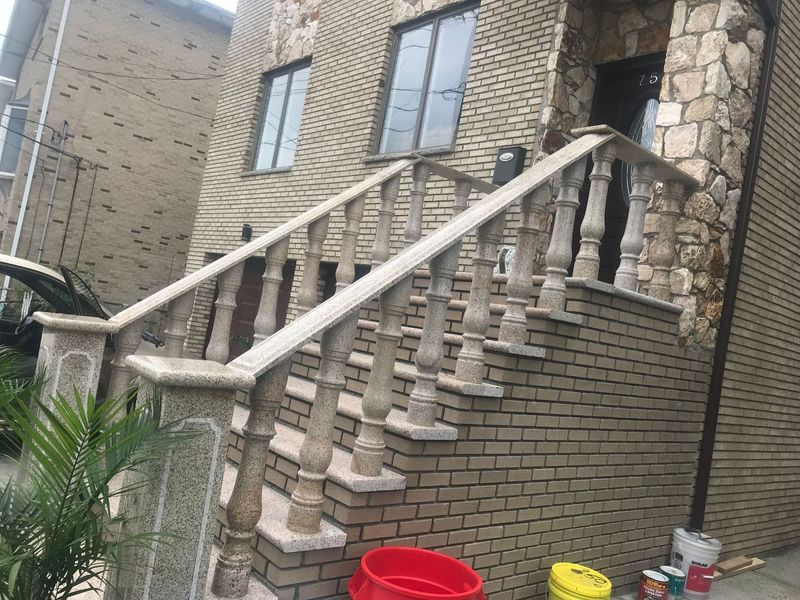Homeownership comes with its own set of joys and challenges. While the comforts of having a place to call your own are immense, the inevitable reality of home repairs can be daunting. From leaky roofs to squeaky floors, knowing how to tackle common issues is essential for every homeowner. In this comprehensive guide, we’ll explore Quick Fixes for Common Home Repairs Every Homeowner Should Know, ensuring you're equipped to handle a variety of situations with ease.
Understanding Home Repairs: The Basics
What Constitutes a Home Repair?
Home repairs can range from minor fixes, like patching up a hole in the wall, to significant renovations such as kitchen or bathroom remodeling. These tasks aim to maintain or improve the functionality and aesthetics of your home.
Why Home Repairs Matter
Regular maintenance and timely repairs not only enhance your home's appearance but also prevent more extensive damage and higher costs down the road. Imagine trying to sell your home with a leaky roof or peeling paint—yikes!
The Importance of Knowing Quick Fixes
Having knowledge about quick fixes empowers homeowners to address minor issues before they escalate. This can save you money on hiring professionals like roofing contractors or remodeling contractors when it's not necessary.
Common Home Repairs and Their Quick Fixes
1. Leaky Roofs: A Quick Guide
Identifying Roof Issues
Before diving into repairs, it’s crucial to identify the source of leaks. Look for water stains on ceilings or walls within your home.
Temporary Fix: Using Roofing Tape
If you find a leak during a rainstorm, you can use roofing tape as a temporary fix until professional roofing contractors can assess the situation.
Long-term Solutions: Professional Help
For permanent solutions, consider hiring roofing contractors who specialize in roof repair. They can ensure that any underlying issues are addressed effectively.

2. Drafty Windows: Insulation Techniques
Assessing Window Drafts
Feeling cold drafts in winter? It might be time to check your windows.
Quick Fix: Weatherstripping
A simple application of weatherstripping around window frames can significantly reduce drafts and improve energy efficiency.
Upgrade Options: Double-Glazing
For long-term improvements, consider investing in double-glazed windows which offer better insulation.
3. Creaky Floors: Silent Solutions
Identifying the Cause of Creaks
Creaky floors often occur due to loose floorboards or nails that have come loose over time.
Quick Fix: Wood Glue & Screws
Apply wood glue to loose boards and secure them with screws to eliminate creaking sounds quickly.
Long-Term Fixes: Professional Flooring Services
If creaks persist, consult construction companies that specialize in flooring repair for further assistance.
4. Cracked Walls: Patching Up Imperfections
Spotting Wall Cracks
Cracks in walls can occur due to settling or temperature changes.
Quick Fix: Spackling Compound
Using spackling compound is an effective way to fill small cracks quickly before painting over them.
When To Seek Help: Professional Painters
If cracks are significant or reappear after repair, seeking help from house painting professionals may be necessary.
5. Sink Clogs: Clearing the Way
Identifying Clogged Sinks
Clogged sinks are one of the most common household headaches.
Quick Fix: Baking Soda & Vinegar Method
Pour half a cup of baking soda followed by half a cup of vinegar down the drain; wait 30 minutes and flush with hot water for immediate results!
When To Call In Plumbing Experts
If these methods fail, it might be time to call plumbing services for assistance with deeper clogs.
6. Flickering Lights: Electrical Troubleshooting Tips
Understanding Flickering Lights
Flickering lights could indicate faulty wiring or bulb issues.
Quick Fix: Replace Bulbs
Start by replacing bulbs; sometimes it's just that simple!
Consulting Electricians for Safety
If flickering persists, don’t hesitate to contact electrical contractors to investigate further—safety first!
FAQs About Common Home Repairs
1. What should I do if my roof starts leaking?
Start by identifying the leak's source. If it's minor, use roofing tape as a temporary fix until professionals can help you out!
2. How often should I inspect my home for repairs?
It's wise to conduct seasonal checks—at least every three months—to catch small issues before they become costly problems.
3. Can I handle all home repairs myself?
While many minor repairs are manageable, certain tasks (like major electrical work) should always be handled by licensed professionals.
4. How do I know when it’s time to call in experts?
If a project seems beyond your skill level or poses safety risks, don’t hesitate! Calling professionals like remodeling contractors is always best in those cases.
5. Are DIY home repairs more cost-effective?
DIY repairs can save money but only if done correctly! Weigh the potential savings against possible mistakes that could lead to bigger problems later on!
6. What’s the best way to find reliable contractors?
Ask friends and family for referrals or check online reviews! Always get multiple quotes before choosing any contractor!
Conclusion
In conclusion, every homeowner should equip themselves with knowledge about quick fixes remodeling contractors for common home repairs. Understanding how minor issues can easily escalate into significant problems will empower you as a homeowner while saving time and money along the way! Remember that while DIY fixes are handy, knowing when it's appropriate to call in experts like roofing contractors or remodeling contractors ensures that your home's integrity remains intact!
So grab those tools and get ready—your journey toward being a proactive homeowner begins today!